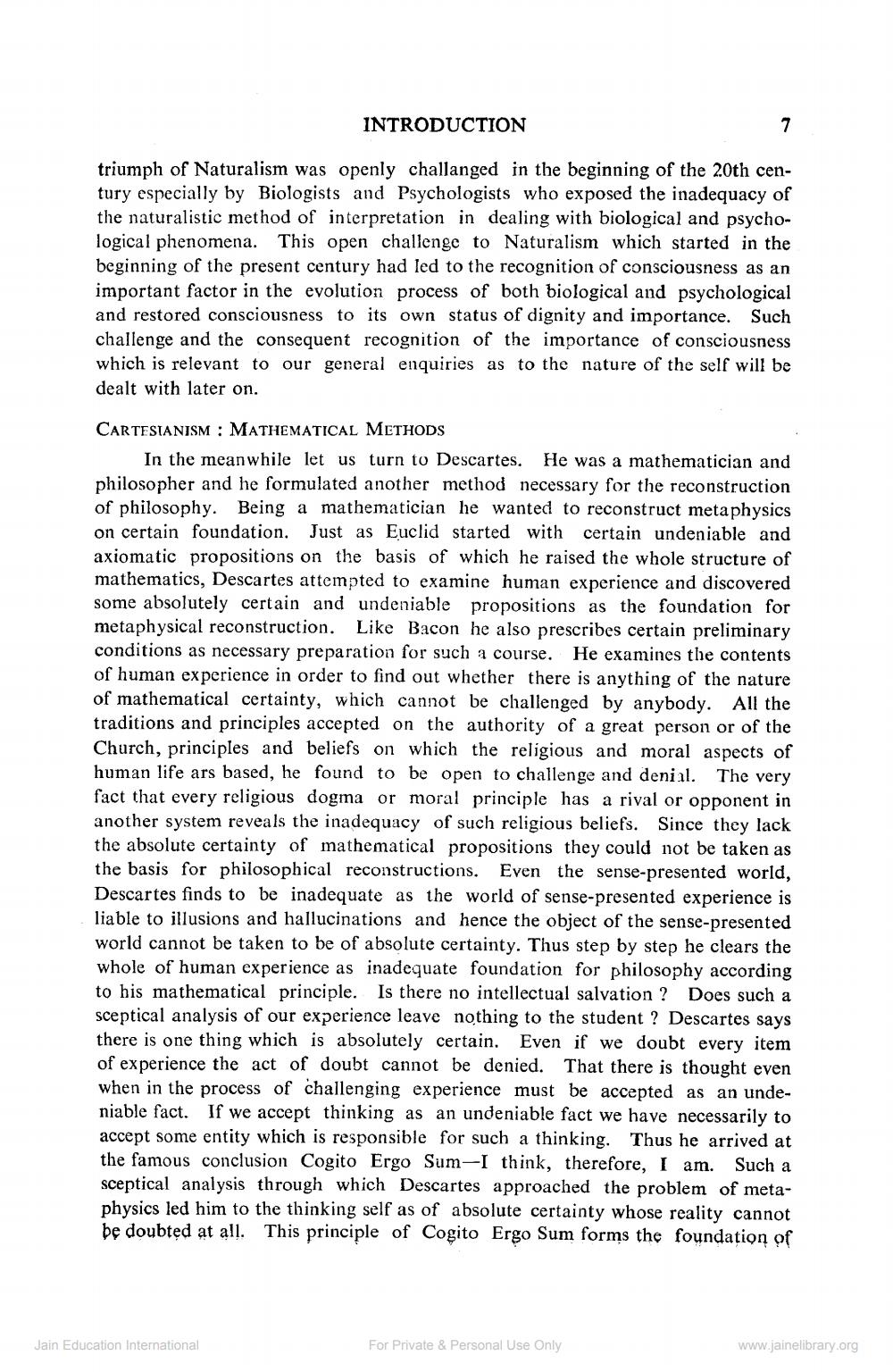________________
INTRODUCTION
triumph of Naturalism was openly challanged in the beginning of the 20th century especially by Biologists and Psychologists who exposed the inadequacy of the naturalistic method of interpretation in dealing with biological and psychological phenomena. This open challenge to Naturalism which started in the beginning of the present century had led to the recognition of consciousness as an important factor in the evolution process of both biological and psychological and restored consciousness to its own status of dignity and importance. Such challenge and the consequent recognition of the importance of consciousness which is relevant to our general enquiries as to the nature of the self will be dealt with later on.
CARTESIANISM : MATHEMATICAL METHODS
In the meanwhile let us turn to Descartes. He was a mathematician and philosopher and he formulated another method necessary for the reconstruction of philosophy. Being a mathematician he wanted to reconstruct metaphysics on certain foundation. Just as Euclid started with certain undeniable and axiomatic propositions on the basis of which he raised the whole structure of mathematics, Descartes attempted to examine human experience and discovered some absolutely certain and undeniable propositions as the foundation for metaphysical reconstruction. Like Bacon he also prescribes certain preliminary conditions as necessary preparation for such a course. He examines the contents of human experience in order to find out whether there is anything of the nature of mathematical certainty, which cannot be challenged by anybody. All the traditions and principles accepted on the authority of a great person or of the Church, principles and beliefs on which the religious and moral aspects of human life ars based, he found to be open to challenge and denial. The very fact that every religious dogma or moral principle has a rival or opponent in another system reveals the inadequacy of such religious beliefs. Since they lack the absolute certainty of mathematical propositions they could not be taken as the basis for philosophical reconstructions. Even the sense-presented world, Descartes finds to be inadequate as the world of sense-presented experience is liable to illusions and hallucinations and hence the object of the sense-presented world cannot be taken to be of absolute certainty. Thus step by step he clears the whole of human experience as inadequate foundation for philosophy according to his mathematical principle. Is there no intellectual salvation ? Does such a sceptical analysis of our experience leave nothing to the student ? Descartes says there is one thing which is absolutely certain. Even if we doubt every item of experience the act of doubt cannot be denied. That there is thought even when in the process of challenging experience must be accepted as an undeniable fact. If we accept thinking as an undeniable fact we have necessarily to accept some entity which is responsible for such a thinking. Thus he arrived at the famous conclusion Cogito Ergo Sum-I think, therefore, I am. Such a sceptical analysis through which Descartes approached the problem of metaphysics led him to the thinking self as of absolute certainty whose reality cannot be doubted at all. This principle of Cogito Ergo Sum forms the foundation of
Jain Education International
For Private & Personal Use Only
www.jainelibrary.org




